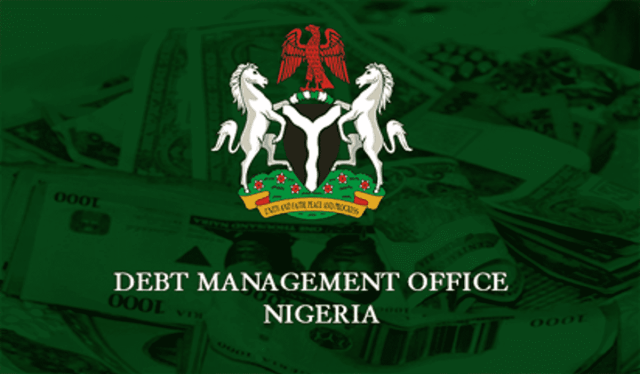…attributed to 2020 budget financing, state govt borrowing, others
The Debt Management Office (DMO) has said that Nigeria’s total public debt rose to N32.9 trillion at the end of December 2020.
The DMO disclosed in a statement on Monday.
From its last report on public debt, the figure stood at N32.2 trillion as of the end of September 2020, which showed an increase of N700 billion.
The DMO disclosed that the total public debt to the Gross Domestic Product (GDP) was 21.61 per cent, adding that it was within Nigeria’s new limit of 40 percent.
“Nigeria’s total public debt as of December 31, 2020 was N32.92tn. The figures include the debt stock of the federal and state governments, as well as, the Federal Capital Territory,” it stated.
It said that after Nigeria exited recession in 2017, the level of new borrowing at the federal level as shown in the annual Appropriation Acts, had been declining to moderate the rate of growth in the public debt stock in order to ensure debt sustainability.
The DMO stated that new borrowing to part finance budget deficits had declined steadily from N2.36 trillion in 2017 to N2.01 trillion in 2018, N1.61 trillion in 2019 and N1.59 trillion in the first 2020 Appropriation Act.
This trend was reversed in 2020 due to the economic and social impact of the COVID-19 pandemic as new borrowing in the revised 2020 Appropriation Act was N4.2 trillion.
The DMO stated, “It should be noted though, that apart from the new domestic borrowing of N2.3tn, the other new borrowings were concessional loans from the International Monetary Fund (IMF) ($3.34bn) and other multilateral and bilateral lenders.
“This incremental borrowing to part-finance the 2020 budget and the additional issuance of promissory notes to settle some arrears of the Federal Government of Nigeria, contributed to the increase in public debt stock.
“New domestic borrowings by state governments also contributed to the growth in the public debt stock.”
In February, the Federal Executive Council at a meeting approved a new Medium-Term Debt Management Strategy for Nigeria, for the period of 2020-2023, when the government disclosed it planned to increase domestic borrowings in its debt profile from 2021 to 2023.
“Borrowing will be from domestic and external sources but a larger proportion of new borrowing will be from domestic sources using long-term instruments while for external borrowing, concessional funding from multilateral and bilateral sources will be prioritised,” it stated.








Leave a comment